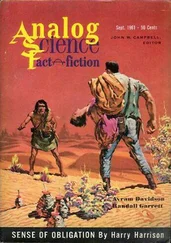M Harrison - Viriconium
Здесь есть возможность читать онлайн «M Harrison - Viriconium» весь текст электронной книги совершенно бесплатно (целиком полную версию без сокращений). В некоторых случаях можно слушать аудио, скачать через торрент в формате fb2 и присутствует краткое содержание. Жанр: Фэнтези, на английском языке. Описание произведения, (предисловие) а так же отзывы посетителей доступны на портале библиотеки ЛибКат.
- Название:Viriconium
- Автор:
- Жанр:
- Год:неизвестен
- ISBN:нет данных
- Рейтинг книги:3 / 5. Голосов: 1
-
Избранное:Добавить в избранное
- Отзывы:
-
Ваша оценка:
- 60
- 1
- 2
- 3
- 4
- 5
Viriconium: краткое содержание, описание и аннотация
Предлагаем к чтению аннотацию, описание, краткое содержание или предисловие (зависит от того, что написал сам автор книги «Viriconium»). Если вы не нашли необходимую информацию о книге — напишите в комментариях, мы постараемся отыскать её.
Viriconium — читать онлайн бесплатно полную книгу (весь текст) целиком
Ниже представлен текст книги, разбитый по страницам. Система сохранения места последней прочитанной страницы, позволяет с удобством читать онлайн бесплатно книгу «Viriconium», без необходимости каждый раз заново искать на чём Вы остановились. Поставьте закладку, и сможете в любой момент перейти на страницу, на которой закончили чтение.
Интервал:
Закладка:
He preserved the circulars, bills, Christmas cards, charity appeals, and small parcels which came through his letterbox for the previous tenants of the house. Almost as if by accident a little of this lost or random communication was addressed to him, from Australia: he gave it pride of place. This was how I learned that his daughter had married and emigrated there several years before.
“She was ungrateful,” he would say, avoiding my eyes and staring at the television. (A car drove slowly out of some factory gates, then faster through a housing estate and onto an empty road.) “She was an ungrateful girl.”
Two chimney sweeps called to see him the Wednesday after I had talked to Dr. Petromax in the El Greco. He was out.
“Is he expecting you?” I asked them.
They didn’t seem to know. They waited patiently in the garden for me to let them in-a large awkward boy in Dr. Martin’s boots, and a man I took to be his father, much smaller and more agile in his movements, who said: “You’ve a fair view here anyhow. You can see a fair way from here.” The boy didn’t answer but stood as if marooned on the concrete path which, like a mirror in the rain, reflected one or two thick yellow crocus buds. Piles of red bricks, rusty brown conifers, the conservatory with its peeling paint, the shed door held closed by a spade, everything else that afternoon was dark; it was more like October than April. “We’re used to working in town.” The boy looked warily at the rain, rubbed some of it into the stubble on his bony, vulnerable skull. He seemed to cheer up.
“You’ll have a few accidents in these lanes then,” he said. “With tractors and that.”
Later he brought the brushes in, and, glancing away from me shyly, spread two old candlewick bedspreads on the lino to protect it. He knelt with a kind of dreamy conscientiousness in Mr. Ambrayses’s tiled hearth, like a child fascinated by everything to do with fire: arranged the canvas bag over the fireplace; fixed it there with strips of Sellotape which he bit carefully off the roll; pushed each extension of the brush up through the bag until the smell of soot came into the room, rich and bitter, and he was forced to stop suddenly.
“There’s still three exes here,” said his father. “It’ll go three more.”
“No it won’t,” said the boy, stirring and pummelling away at the chimney.
“I’ll go and look.”
When he came back he said, “I can hear it rattling at the top.”
“It might be rattling but it’s not going up.”
They stared at one another.
“I can hear it as plain as day; there’s something at the top. I can fair hear it, plain as day, rattling against it.”
At this the boy only pummelled harder.
“Has plenty come down?” his father asked.
“Aye.”
“That’s all we can do then.”
The boy pulled the brush gently back into the room, disassembling the extensions one by one while the man stood looking down at him breathing heavily, hands on hips, watching in case he had fetched the obstruction out. They ripped the bag off, revealing the fireplace choked to three-quarters of its height with soot: nothing else. The boy screwed the Sellotape up contemptuously into a glittering sticky ball. He invited me to look up the chimney, but all I saw was a large dark recess, much rougher than I had imagined it would be, blackened and streaked with salts, like a cave.
“The fact is,” he said to me, “I don’t know how your friend keeps a fire there at all.”
When I told Mr. Ambrayses this he said anxiously, “Was Petromax with them?”
I laughed.
“Of course he wasn’t. Is he a sweep?”
“Never let anyone in here,” he shouted. “Describe them! That boy: were his hands big? Clumsy, and the nails all broken?”
“How else would a chimney sweep’s hands be?”
He ignored this and, as if preoccupied by the answer to his first question, whispered to himself, “It was only the sweeps.” Suddenly he got down on his back among the hair clippings and screwed-up bits of paper on the floor, pulled himself into the hearth, and tried as I had done to look up the chimney. Whatever he saw or failed to see there made him jump to his feet again. He went round the room pulling cupboards open and slamming them shut; he picked up one or two of the postcards his daughter had sent him from Australia, stared in a relieved way at the strange bright stamps and unreal views, then put them back on the mantelpiece. “Nothing touched,” he said. “You didn’t let them touch anything?” When I said that I hadn’t, he seemed to calm down.
“Look at these!” he said.
He had used up an entire pack of Polaroid film, he told me, photographing three pairs of women’s shoes someone had thrown into a ditch at the top of Acres Lane where it bends right to join the Manchester Road. “I noticed them on Sunday. They were still there when I went back, but by this morning they had gone. Can you imagine,” he asked me, “who would leave them there? Or why?” I couldn’t. “Or, equally, who would come to collect them from a dry ditch among farm rubbish at the edge of the moor?” The pictures, which had that odd greenish cast Polaroids sometimes develop a day or two after they have been exposed, showed them to be flimsy and open-toed: one pair in black suede, an evening shoe with a brown fur piece; one made of transparent plastic bound at the edges in a kind of metallic blue leather; and a pair of light tan sandals with a crisscross arrangement of straps to hold the upper part of the foot.
“They were all size four,” said Mr. Ambrayses. “The brand name inside them was Marquise: it was a little worn and faded but otherwise they seemed well-kept.”
All at once he dropped the photographs and went to look up the chimney again.
He whimpered.
“Never let anyone in here!” he repeated, staring helplessly up at me from where he lay. “You have a lot to learn about Petromax.”
Two or three days later he locked up his house and went to Hull, to look, he said, for a rare book he had heard was there. The door of his garden shed banged open in the wind half an hour after he had gone, and has been banging since.
If Mr. Ambrayses was, as I now believe, the other survivor of the experiment with the mirror-the one who, sickening in that slum behind the Rue Serpolet, heard even in his sleep echoes of a voice in the deserted bathhouse, and who, dragged delirious and sweating with wrecked dreams through the freezing back lanes on their last night, never saw the ethereal lights of the High City-why was his memory of Viriconium the reverse of Petromax’s?
It seems unlikely I will ever find out.
Petromax avoids me now he has set his poison in me. I see him around Huddersfield, but his wife keeps close to him. If they notice me they go up another street. They often have a child with them, a girl of about ten or eleven whose undeveloped legs stick out of the hem of a thick grey coat however warm the weather. She dawdles behind them, or darts away suddenly into a shop doorway, or she stops in front of the Civic Centre and refuses to walk with them, making a grunting noise as if she is suppressing a bowel movement. You can see that this is only another formalised gesture: they are a family, and her effort not to belong is already her contribution.
Petromax’s mirror, if anyone wants to know, is in the lavatory of the Merrie England Cafe, a little further down New Street than the El Greco, between the Ramsden Street junction and Imperial Arcade.
Go straight through the cafe itself, with all its cheap reproductions of Medieval saints and madonnas, Mon Seul Desir, all those unicorns and monkeys, where the iron lamp fittings and rough plaster bring you close to the Medieval soul in its night “untainted by any breath of the Renaissance,” and you find on the left a doorway made to look like varnished oak. The steps are painted cardinal red; for a moment they appear wet. Go down them and the warm human buzz of traffic and conversation fades, distance dilutes the familiar scraping hiss of the espresso machine. There behind the pictogram on the neat grey door, above the sink with its flake of yellow soap and right next to the Seibel hand dryer, is Petromax’s mirror. It is smaller than you would think, perhaps eighteen inches on a side.
Читать дальшеИнтервал:
Закладка:
Похожие книги на «Viriconium»
Представляем Вашему вниманию похожие книги на «Viriconium» списком для выбора. Мы отобрали схожую по названию и смыслу литературу в надежде предоставить читателям больше вариантов отыскать новые, интересные, ещё непрочитанные произведения.
Обсуждение, отзывы о книге «Viriconium» и просто собственные мнения читателей. Оставьте ваши комментарии, напишите, что Вы думаете о произведении, его смысле или главных героях. Укажите что конкретно понравилось, а что нет, и почему Вы так считаете.











